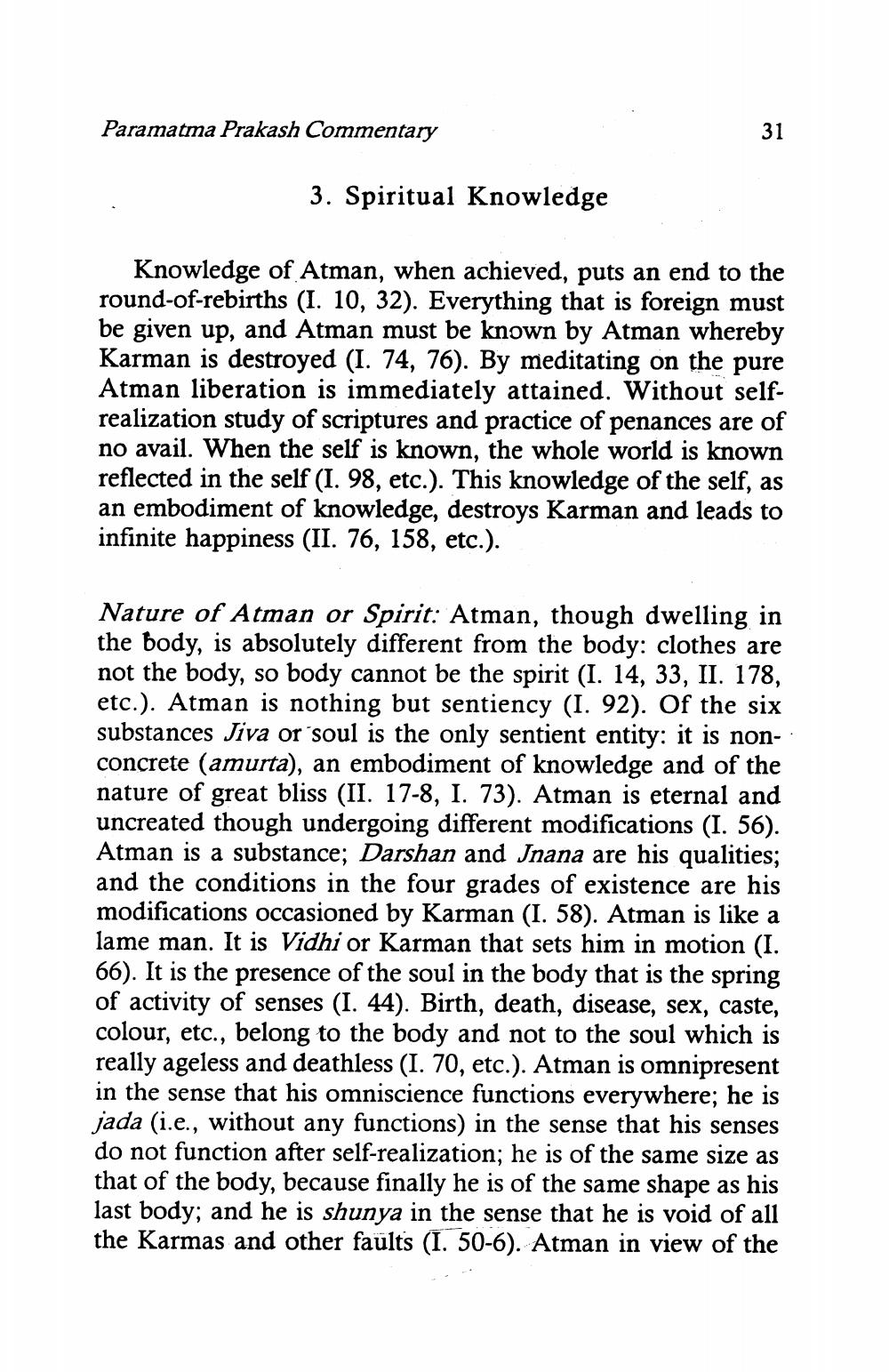________________
Paramatma Prakash Commentary
31
3. Spiritual Knowledge
Knowledge of Atman, when achieved, puts an end to the round-of-rebirths (I. 10, 32). Everything that is foreign must be given up, and Atman must be known by Atman whereby Karman is destroyed (I. 74, 76). By meditating on the pure Atman liberation is immediately attained. Without selfrealization study of scriptures and practice of penances are of no avail. When the self is known, the whole world is known reflected in the self (I. 98, etc.). This knowledge of the self, as an embodiment of knowledge, destroys Karman and leads to infinite happiness (II. 76, 158, etc.).
Nature of Atman or Spirit: Atman, though dwelling in the body, is absolutely different from the body: clothes are not the body, so body cannot be the spirit (I. 14, 33, II. 178, etc.). Atman is nothing but sentiency (I. 92). Of the six substances Jiva or 'soul is the only sentient entity: it is nonconcrete (amurta), an embodiment of knowledge and of the nature of great bliss (II. 17-8, I. 73). Atman is eternal and uncreated though undergoing different modifications (I. 56). Atman is a substance; Darshan and Jnana are his qualities; and the conditions in the four grades of existence are his modifications occasioned by Karman (I. 58). Atman is like a lame man. It is Vidhi or Karman that sets him in motion (I. 66). It is the presence of the soul in the body that is the spring of activity of senses (I. 44). Birth, death, disease, sex, caste, colour, etc., belong to the body and not to the soul which is really ageless and deathless (I. 70, etc.). Atman is omnipresent in the sense that his omniscience functions everywhere; he is jada (i.e., without any functions) in the sense that his senses do not function after self-realization; he is of the same size as that of the body, because finally he is of the same shape as his last body; and he is shunya in the sense that he is void of all the Karmas and other faults (I. 50-6). Atman in view of the




